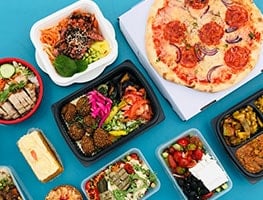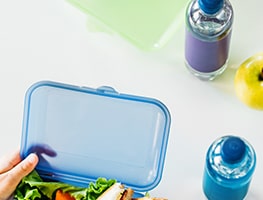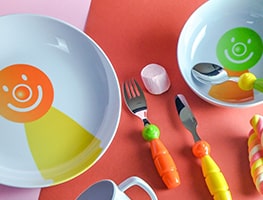

Breast Feeding
Women express and store breast milk for many reasons, including preparing for a night out, returning to work and illness. During the early days of feeding is when your body is producing excess quantities of milk and many women take the opportunity of expressing and storing at this time. Here are some tips.

Cooking With Kids
You can start even before your little one can walk or talk by reading books about cooking and the kitchen. Then, once your little one has the skills, open the kitchen up to some fun.

Delicious meal ideas
Are you and your kids bored with the same old chicken or quick pasta meals? Or do you just have trouble finding time to think of other meal ideas? Here are some delicious recipes to get the creative and mouth juices going.

Healthy Eating
A child between the ages of 1 and 5 will generally consume three main meals and two snacks a day; while some children may eat smaller but more frequent meals. This is also normal. It’s important to remember that we are all different; if your child doesn’t eat in the same pattern as you do, there is no problem with this. Most children require food every three to four hours fitted nicely into their daily routine. Delaying a meal or snack only 10 minutes past the usual time can cause hunger-induced irritability, which may result in poor choices of foods in order to calm a cranky child.

Lunchbox Ideas
Ideally, main meals should have protein, and carbohydrates; for example tuna on a roll with grated vegetables. Often they can be served with a piece of fruit and always with water. Some of our ideas are portable while others are best at home.

Picky Eaters
Toddlers and pre-schoolers often request fad foods, turn up their noses at any food with a hint of green or only eat food presented in an unusual way. They tend to dawdle over meals and quickly lose interest or be tempted elsewhere. We call this stage ‘picky eating’. It is quite different from a more troublesome eating problem called food Neophobia (a fear of new foods) which tends to be related to personality issues such as anxiety, making it harder to resolve. Because picky eating is a developmental stage, it generally doesn’t inhibit healthy development in children. However, true Neophobia can reduce dietary variety and place stress on parents and caregivers.

Starting on solids
One of the most important things you can give your baby is a balanced, healthy diet. For the first few months, baby feeding is pretty straightforward because your little darling drinks her food, rather than eats it. The World Health Organisation recommends exclusive breastfeeding for the first 6 months (exclusive meaning only breast milk is given to your baby and nothing else – no water, no pap, just breast milk. At 6 months you start introducing solid food and carry on breastfeeding for at least 2 years). At 6 months of age, the next significant step in baby feeding takes place: eating solids. For first-time parents, this can be a big deal, as you probably don’t have a clue about what to feed your little one. Also, you may be worried about hygiene and all those food allergies that seem to be about these days.













